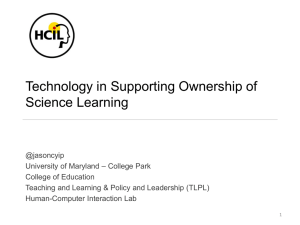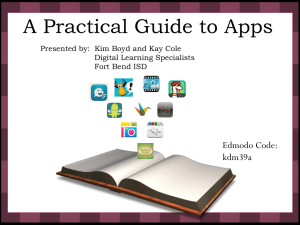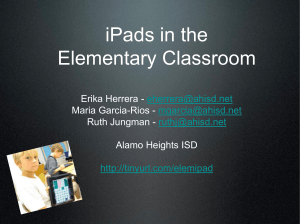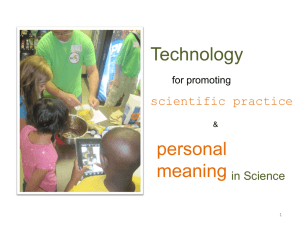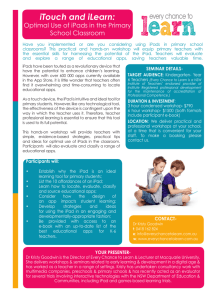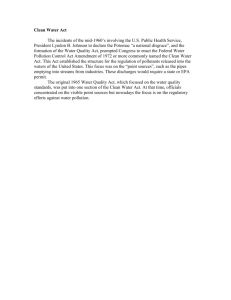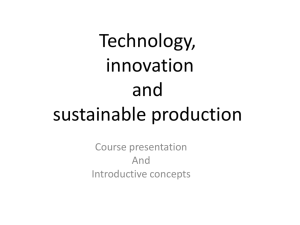EDIT Summary - WordPress.com
advertisement
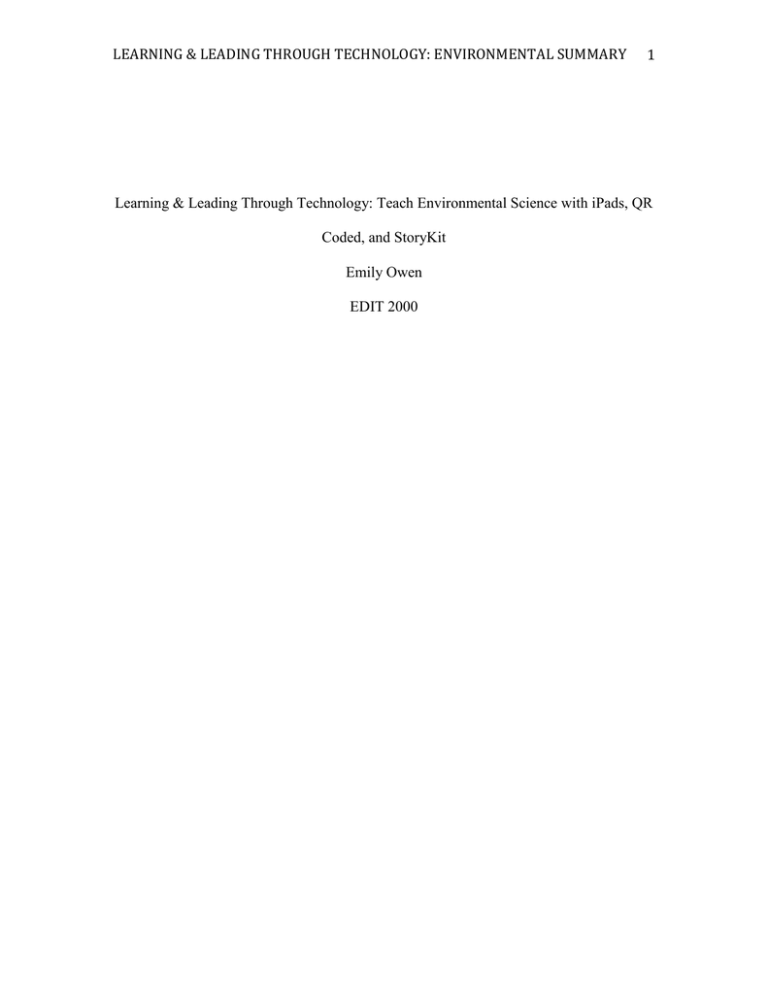
LEARNING & LEADING THROUGH TECHNOLOGY: ENVIRONMENTAL SUMMARY 1 Learning & Leading Through Technology: Teach Environmental Science with iPads, QR Coded, and StoryKit Emily Owen EDIT 2000 LEARNING & LEADING THROUGH TECHNOLOGY: ENVIRONMENTAL SUMMARY 2 In the article “Teach Environmental Science with iPads, QR Coded, and StoryKit” in Learning and Leading through Technology, an Environmental Sciences class at Clemson University participated in an interactive scavenger hunt enhanced with the use of just an iPad and two applications. In their plan to learn more about different sources of pollution around campus, the students were able to accomplish this with a much greater understanding for the subject than would be possible through lecture. Each group of students was given an iPad with a QR Coding application as well as the application StoryKit, which allows students to post text, photographs, and audio all together. There were six stations set up at six different sights of pollution. At each station, a QR code was posted and it directed students to their task upon the QR Coding apps decoding. At each station, students were to follow the instructions of the QR code and record their answers/findings on the StoryKit app. Upon completion of this activity, students claimed they had a better understanding of the information, the apps allowed them to better record their information, and the technology made the activity more engaging. I selected this article because I am very interested in Environmental Science and I am originally from the Clemson area. Although neither of these things drastically affect the activity presented in the article, it did grab my attention. I took two years of International Baccalaureate Environmental Sciences, and learned, in great detail, the causes and effects of different types of pollution, and I believe that my experience allowed me to better understand the practical application of the technologies utilized in the article. LEARNING & LEADING THROUGH TECHNOLOGY: ENVIRONMENTAL SUMMARY 3 I would not describe myself as “technologically savvy”, therefor there was actually a lot of information that I took from this article that I was not already aware of. First, both apps used in the activity were unfamiliar to me, and simply learning of their different functions allowed me to see their usefulness in the activity outlined as well as other reallife situations. For example, the StoryKit app could be implemented in almost any interactive research activity to add to the one-dimensional and more traditional essay format that has been so commonly used. The technology used in this activity, as mentioned above, could have many implications in the real world as well as in classrooms. Adding the technology does not change the lesson, however it does engage students at a much higher rate, allowing them to fully understand the information presented. At a much smaller scale, a similar activity applied to different subjects using the same method could be very effective in lesson plans for all classroom ages. After reading the article, I am slightly curious about the effect the QR codes had on the lesson. I imagine they would be minimal, as the codes simply redirected students to written instructions. By cutting out the QR codes, I am wondering if this would save the professor or teacher a considerable amount of time, without affecting the lesson plan? Besides this rather miniscule detail, I believe that the rest of the article was very clear and a very nice alternative to what could have been an unpleasant lecture. LEARNING & LEADING THROUGH TECHNOLOGY: ENVIRONMENTAL SUMMARY Works Cited: Alston, Daniel M., and Cynthia C. Deaton. "Learning & Leading Through Technology May 2014." Learning & Leading Through Technology - May 2014. Learning and Leading with Technology, May 2014. Web. 19 Jan. 2016. Twitter: In "Teach Environmental Science... ...StoryKit" an Environmental Studies class use technology to track pollution around campus #edit2000yoon 4
